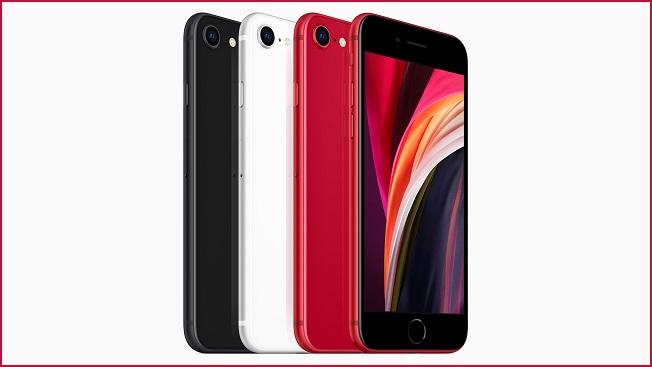Apple just announced a new, cheaper iPhone – but don’t expect any extra features.
The budget iPhone SE will start retailing from $749 for a 64GB device which is noticeably cheaper than Apple’ latest model, the iPhone 11, that was on sale for nearly $2,000 when released last year.
Apple is targeting the SE to users of older iPhones who don’t regularly make the expensive jump to a new model every couple of years.
Like its predecessor, the 2016 iPhone SE, the new SE will feel very much like the phones it’s designed to replace: its 4.7” display is the same size as the standard iPhones 6 ,7, and 8, and the SE weighs 148g – exactly the same as the iPhone 8 and much less than the 11 Pro Max’s 226g.
Apple even says the SE’s battery “lasts about the same” as the iPhone 8.
So why upgrade?
If you’ve already got an iPhone 8, the main improvement is the A13 Bionic chip – which sits onboard the iPhone 11 – that features a 2.65GHz CPU, integrated quad-core GPU, and boosted neural network processor.
The SE also has Apple’s ‘Portrait Lighting’ effects for selfies, if that’s your thing.
Otherwise, the specs are about equal across the board between the 8 and the SE: a single 12MP front camera, 4K video recording, it’s a little bit water resistant, doesn’t have Face ID, and there is still no 5G.
The SE seems more targeted at people who have been hanging onto older iPhone models but won’t fork out the money for a bigger, heavier, less familiar device.
It also offers an introduction to iPhones for budget-conscious conscious – a market segment which Apple has typically avoided but which is becoming increasingly important given the economic situation the SE is born into.
No 5G iPhone … yet
If you’re an Apple fan who’s been waiting for a 5G enabled iPhone, you’ll have to sit tight for a little longer.
Earlier this month, tech leaker Jon Prosser said Apple has finished prototyping its iPhone 12 and it will have a 5.4” screen base model and 5G capabilities.
Prototyping for iPhone 12 devices is just about finalized!
— Jon Prosser (@jon_prosser) April 6, 2020
Final details line up pretty well with what Kuo said last year! 🤯
Expect to see CAD renders of the devices within the next month or two from your favorite leakers! 👀
Now let’s see if Apple can get them out by EOY! pic.twitter.com/nAfA7JHMx2
Official word from Apple about their first 5G phone isn’t expected until later in the year, with the tech giant usually making its major product announcements in an annual September event – a big stage show that will likely look markedly different in 2020 due to the coronavirus.










